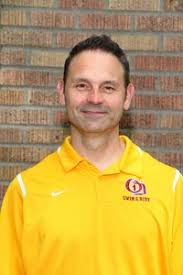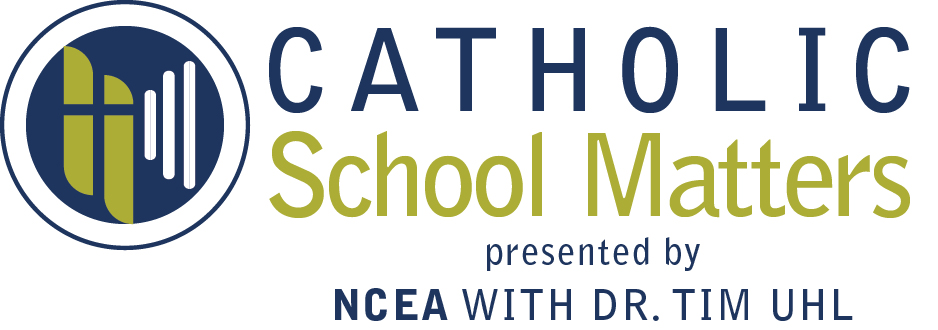Guest Blogger Tom Schutte is a 25-year veteran of O’Dea High School and one of the guests on the Lay Catholics in Schools podcast on the Catholic School Matters podcast.
 This document of the Catholic Church is quite compelling! Although I had not read it before doing this podcast with Dr. Tim Uhl, I was glad to dive deeply into its prophetic message crafted back in 1982. Having spent my career as a Catholic School educator as a lay married man, I found the document to be accurate, challenging, and spot-on to the real-life dynamics in the trenches of high school teaching in a Catholic School. With a decreasing number of vowed religious priests, brothers, and nuns in America, everyone needs to step up to carry the torch of our faith in Christ into the next generation. Faithfully minded educators and school leaders have a “privileged opportunity” to not teach their academic subject with professionalism, but share in the beautiful transformation of our students as they mature as young Christian disciples.
This document of the Catholic Church is quite compelling! Although I had not read it before doing this podcast with Dr. Tim Uhl, I was glad to dive deeply into its prophetic message crafted back in 1982. Having spent my career as a Catholic School educator as a lay married man, I found the document to be accurate, challenging, and spot-on to the real-life dynamics in the trenches of high school teaching in a Catholic School. With a decreasing number of vowed religious priests, brothers, and nuns in America, everyone needs to step up to carry the torch of our faith in Christ into the next generation. Faithfully minded educators and school leaders have a “privileged opportunity” to not teach their academic subject with professionalism, but share in the beautiful transformation of our students as they mature as young Christian disciples.
As I studied this document on the laity, nearly every paragraph delivered a new facet of insight and clarity into the mission and vision of our Catholic Schools. Yes, we need to enthusiastically demonstrate to our students what our Catholic faith principles and values are, as well as provide real life practical examples about how to live them out in our culture today. Being a living witness elevates the academic content to a higher level of learning for life and not just a test.
I found the document to be captivating and it renewed my own gratitude for being able to engage in such an incredible and Spirit filled endeavor within Catholic Schools. The document points out that each teacher needs to commit to their own ongoing personal walk with Christ in the Church and be formed again and again more deeply with God’s grace to witness to the beauty of the adventure of following Christ. Many paragraphs address the sense of vocation and I find this dimension to be palpable in the daily flow of Catholic school life. It is a calling to make your life an instrument of accompanying others in their human flourishing. How humbling and amazing this endeavor is! As the document states, “The concrete living out of a vocation as rich and profound as that of the lay Catholic in a school requires an appropriate formation, both on the professional plane and on the religious plane” (60). Furthermore, we need to keep continuously update our knowledge and teaching skills, “Because of change . . . the need for new attitudes and new methods is constant” (67).
I am sure that this document will continue to transcend generations with an exciting and challenging message to empower lay Catholics to lead our students, schools, and larger Church in our future that is full of hope.
